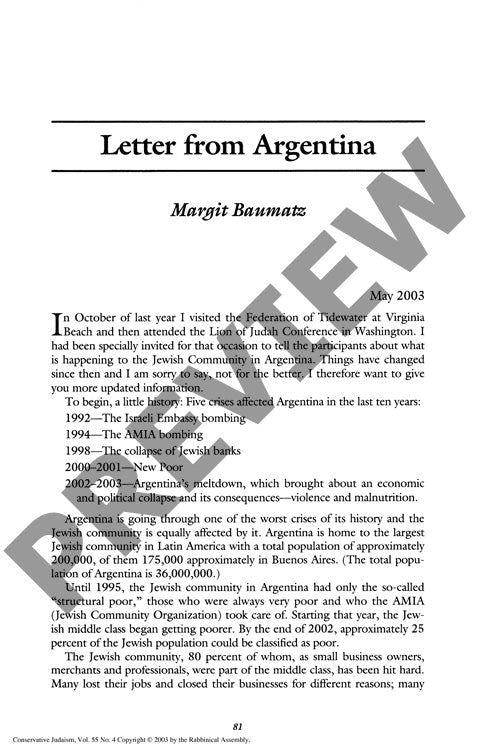Letter from Argentina
Couldn't load pickup availability
A devastating series of events - terrorist bombings, banking collapses, and national economic meltdown - transformed Argentina's Jewish community from self-sufficiency to widespread dependency between 1992-2003. Through ethnographic research and statistical analysis of welfare distribution programs, Rabbi Margit Baumatz documents how approximately 25% of Argentina's 200,000 Jewish citizens fell into poverty during this period. The scale of need expanded dramatically, from 5-10 assistance recipients in 1997 to over 34,524 by 2002, necessitating the establishment of 74 social assistance centers nationwide. Formerly middle-class Jewish professionals and business owners lost savings, employment, and housing, requiring comprehensive support including food vouchers, medical care, psychological assistance, and emergency housing. While community-led initiatives like the "Beiajad" program successfully served over 18,000 participants during Jewish holidays and created job placement opportunities, traditional self-sufficiency mechanisms proved inadequate for addressing the crisis. The findings demonstrate that external financial support became essential for the community's survival through this unprecedented period of socioeconomic upheaval.

More Information
-
Physical Description
-
Publication Information
Published 2003
ISBN
-
Publication Credits
Margit Baumatz

